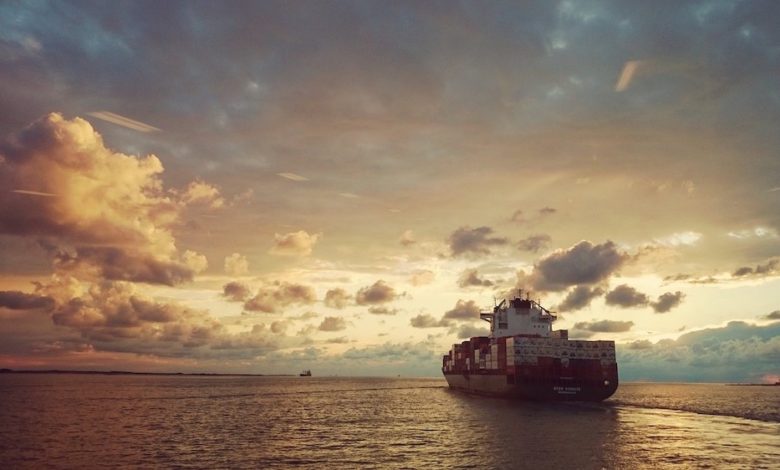Data and sustainability

Using data to drive operations beyond regulatory minimums is an ideal formula to create an environment that nurtures truly sustainable shipping operations, writes Per Bjärkby, chief technology officer at Yara Marine Technologies.
Shipping and the wider maritime sector have made tangible commitments to reducing their environmental impact. While these targets may vary – with different aims set by the IMO’s initial Green House gas (GHG) strategy, the Global Maritime Forum’s Getting to Zero Coalition, the EU’s Fit for 55 plan and others – there is no doubt that change is on the horizon.
Shipowners, particularly those impacted by the covid pandemic, port congestion and skyrocketing high fuel costs, are likely to find it intimidating to commit to greener operations in the face of a rapidly shifting operating environment. However, given that the decarbonisation transition cannot be avoided, the focus should be on allocating resources to future-proof investments.
The biggest shift must be one of strategy, where operators should think long term and have their decisions be guided by data. Maritime is already becoming more data-minded, with operators gathering information about fuel consumption, weather, training, spares and more. Although this information will create the foundations of future shipping – with multiple vessel trials for autonomous vessels underway – it is a treasure trove of valuable information.
Data holds the power to set benchmarks that can accurately measure progress towards pre-determined goals (such as reduced fuel consumption) and identify areas of improvement so that limited resources can be appropriately allocated to maximise the benefit (such as training staff to be comfortable with newer technologies).
Operators are able to set benchmarks not just for individual vessels but also across their fleets. Furthermore, classification societies such as ABS and DNV are developing anonymised data lakes which allow customers to compare their operations against the global fleet.
Modern mindset
At present, shipping works with a carrot and stick approach, where freight rates work as the ‘carrot’ and regulations work as the ‘stick’. Traditionally, the IMO has set minimum requirements that create a level playing field for operators. But we are presently seeing a shift towards continual improvement in the form of the IMO’s Carbon Intensity Indicator (CII), which allows grading of a vessel based on its performance. This grading (which follows a format similar to the energy efficiency rating of many appliances) makes the hierarchy of greener vessels clear, with ships carrying an “A” rating seen as more desirable by customers that have pledged to reduce their carbon footprint – and thus worthy of higher freight rates. In other words, the carrot and stick are uniting to drive decarbonisation forward.
Constant, iterative improvement is a modern way of operating that requires operators to look at the big picture. While there are certainly challenges to operating in a new way, this also creates opportunities for those operators that are able to stay ahead of the curve. For example, the ability to demonstrate consistent improvement using data benchmarks is an extremely valuable tool to secure funding for fleet expansions and other capital-intensive improvements.
Many banks, national schemes and private investors look to a company’s Environmental, Social and Governance (ESG) markers when assessing viability for loans, meaning that there is a financial penalty that will be incurred by companies that do not hit the mark when it comes to greener operations. By comparison, those that are able to position themselves as ESG friendly are likely to experience a smoother financing or refinancing process – and also realise higher profit margins.
Steady transition
Transitioning to a decarbonised future will take decades. Not only would scrapping the current fleet be environmentally problematic, but making this change in a safe and sustainable manner will require operators to invest in structures to support continuous vessel performance improvement. This is likely to mean greater investments in training, technology and company culture, which cannot take place overnight. After all, getting crew to use new technology as intended requires them to buy into the changed process – which will mean educating them to understand both, the technical aspects, but also the ethos for choosing to operate in this manner.
Although crew training and buy in is a more time and cost-intensive process, it is likely to yield better results than a tick box exercise in compliance that could see vessels detained and owners fined. It must also be said that empowering crew with the right tools and knowledge positions a company well to weather future changes to regulations as well-trained staff can think ahead of the curve and have sufficient time to prepare for changes.
Maritime must stop being afraid of change. Best practice is – by its very nature – iterative, requiring constant change and sufficient time for company processes to be honed to a high standard. Using alternative fuels and new technologies (such as artificial intelligence) is not rocket science and even though there are unfamiliar risks, the means to address these remains the same: company policy, training and a working culture that values going beyond regulatory compliance. All of this can be tracked using relevant metrics. In fact, if handled right, employee feedback and data can be valuable tools that can enable deeper profitability.
Our environmental goal is not a trade-off between profit and sustainability. True sustainability includes financial viability and the transition to a decarbonised future will open doors for those operators brave enough to go beyond the minimum.
But we must begin acting now. Companies have to map out their journey to this greener tomorrow and not assume that it will magically appear when the clock strikes midnight on the IMO GHG strategy deadline of 1 January 2050. We must gather data, make informed decisions about our operations and ensure that we are moving in the right direction. We must decide our future – and it must be green.
